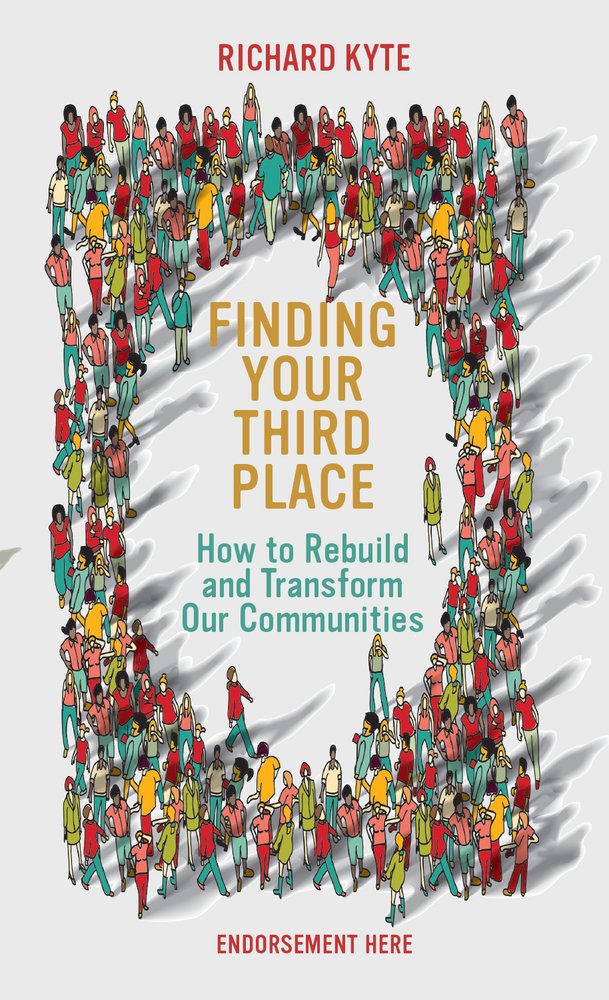Finding Your Third Place
How To Rebuild and Transform Our Communities

An exciting new look at the essential gathering spaces in our society where friendships are formed, relationships are nurtured, and the tapestry of community is woven.
Do you have a third place? Your first place is home, your second place is work, and your third place is where you go to socialize and build friendships. Yet, for several reasons, many people today find themselves without a third place of their own. At a time when our nation is facing an epidemic of loneliness and communities are suffering from a loss of trust, low levels of engagement, despair, and political polarization, what if the answer to many of our problems lies in a simple idea? What if we just need to pay attention to the places where we find ourselves?
Rick Kyte combines storytelling, social science, and philosophy to explore:
- What makes a third place
- Factors that create and support vibrant communities
- The role of hospitality in creating belonging and social connection
- How third places foster friendships and bind us to others in our community
- What it takes to find and create a third place of your own
“Rick Kyte's insight into the vital human experience of connection and friendship is both scholarly and inspiring. The next time I visit my favorite coffee shop, I'm leaving my laptop at home. It's time to look outward and engage more fully with others in our third places.”
—Amy Dickinson, “Ask Amy” advice columnist and author of The Mighty Queens of Freeville
FEATURED IN VOX AND THE “ASK AMY” COLUMN

Richard Kyte is Director of the D. B. Reinhart Institute for Ethics in Leadership and Endowed Professor of Ethics at Viterbo University in La Crosse, Wisconsin where he teaches a variety of courses dealing with ethical issues in business, health care, law, politics, and the environment. He has published and lectured widely on topics related to justice, forgiveness, virtue, and the meaning of life.
Richard attended Hamline University where he earned a B.A. in philosophy. He then went on to graduate school, obtaining a Ph.D. in philosophy from The Johns Hopkins University in 1994.
